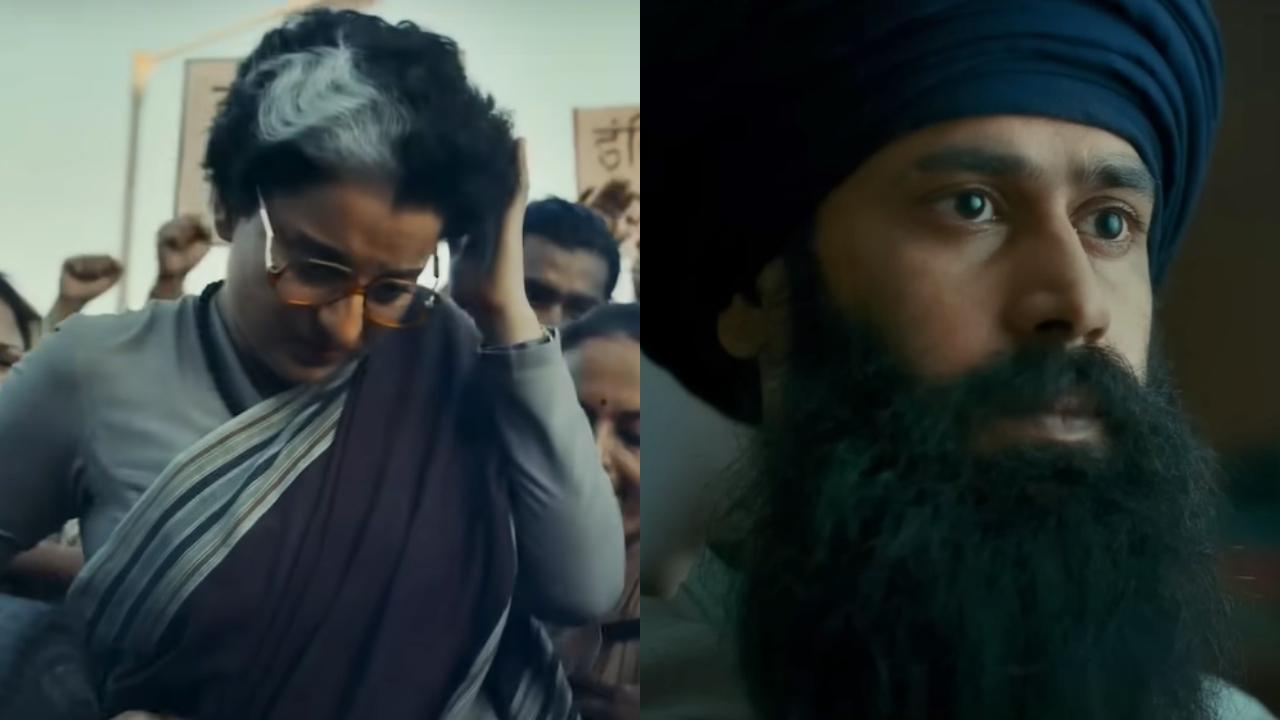
In a storm of controversy and rising tensions, Bollywood actress Kangana Ranaut’s upcoming film ‘Emergency’ has sparked substantial outcry from the Sikh community, resulting in demands for an immediate ban and even death threats against the actress. The film, which is set against the backdrop of the 1975 Emergency in India and features Ranaut as former Prime Minister Indira Gandhi, has been accused of misrepresenting the Sikh community in a negative light.
The Akhal Takht, the highest temporal seat of the Sikhs, along with the Shiromani Gurdwara Parbandhak Committee (SGPC), have issued firm statements condemning the movie. According to the Akhal Takht and SGPC, the film distorts historical facts and engages in “character assassination” of significant Sikh figures. The SGPC chief, Harjinder Singh Dhami, went so far as to suggest the registration of a First Information Report (FIR) against Ranaut, emphasizing the need for legal action to prevent the film from seeing the light of day.
At a press conference, Gyani Raghbir Singh, the Jathedar (head) of the Akal Takht, expressed stringent objections to the film’s content. Singh asserted that the film propagates a false narrative, depicting Sikhs as separatists and thereby disrespecting the community. Excerpts from the movie released to the public allegedly illustrate the film’s insidious attempt to rewrite history, suggesting a bigger conspiracy to malign the Sikh community and its contributions, particularly those relating to events from June 1984. This period remains a sensitive chapter in Indian history, marked by deep-seated wounds from Operation Blue Star, and any perceived distortion of it provokes strong reactions.
As tension escalates, a video surfaced online featuring Sikh men from Maharashtra, openly criticizing and threatening Kangana Ranaut. In the video, a Sikh man speaking partially in Marathi warns, “Aap ye picture release karte ho toh sardaaron ne aapko chappal maarni hai. Laafa toh aapne kha liya,” translating to a direct threat of physical assault if the film is released. He identifies himself as a proud Indian, Sikh, and Marathi, hinting at a united backlash from various religious communities—Hindu, Christian, and Muslim—against the film’s release.
.
Punjabi influencer Viky Thomas Singh also expressed his indignation in the video, stressing that history cannot be altered. He invoked the memory of Satwant Singh and Beant Singh, who were involved in the assassination of Indira Gandhi, and warned that Sikhs have a history of strong responses to perceived injustices. Singh’s statements, filled with emotional and historical references, underline the communal sensitivity surrounding the film.
In response to the threats, Kangana Ranaut took to social media platform X, urging law enforcement agencies including the Maharashtra Police, Himachal Police, and Punjab Police to look into the matter. Her concern underscores the gravity of the situation and the palpable risk to personal safety that has ensued from this controversy.
‘Emergency’ is not just another Bollywood release but a highly anticipated political drama that delves into one of India’s most controversial historical periods. With a stellar cast featuring Anupam Kher, Mahima Chaudhary, Milind Soman, Shreyas Talpade, Vishak Nair, and the late Satish Kaushik in pivotal roles, the film aims to offer a comprehensive narrative of the 1975 Emergency period. However, the storyline’s depiction of Sikhs has, unintentionally or otherwise, opened old wounds.
Ranaut’s role as Indira Gandhi adds a layer of authenticity to the film given her reputation for intense and immersive performances. The actress-director has been known for courting controversies in the past, but this time, the backlash from the Sikh community finds its roots in a complex historical narrative and the significant emotional weight that comes with it.
Set to hit theatres worldwide on September 6, 2024, ‘Emergency’ has already established itself as one of the most debated films of the year. The drama, already enveloped in controversy, promises to fuel even more discussion upon its release. As the debate intensifies, all eyes are on how this controversy unfolds and whether it will set a precedent for future portrayals of sensitive historical events in Indian cinema.
(With inputs from Agencies)












